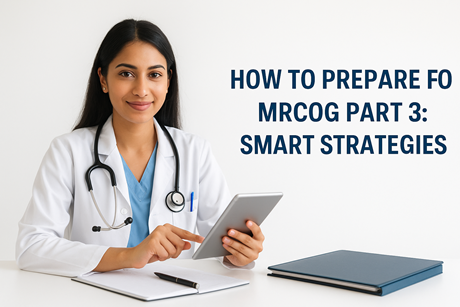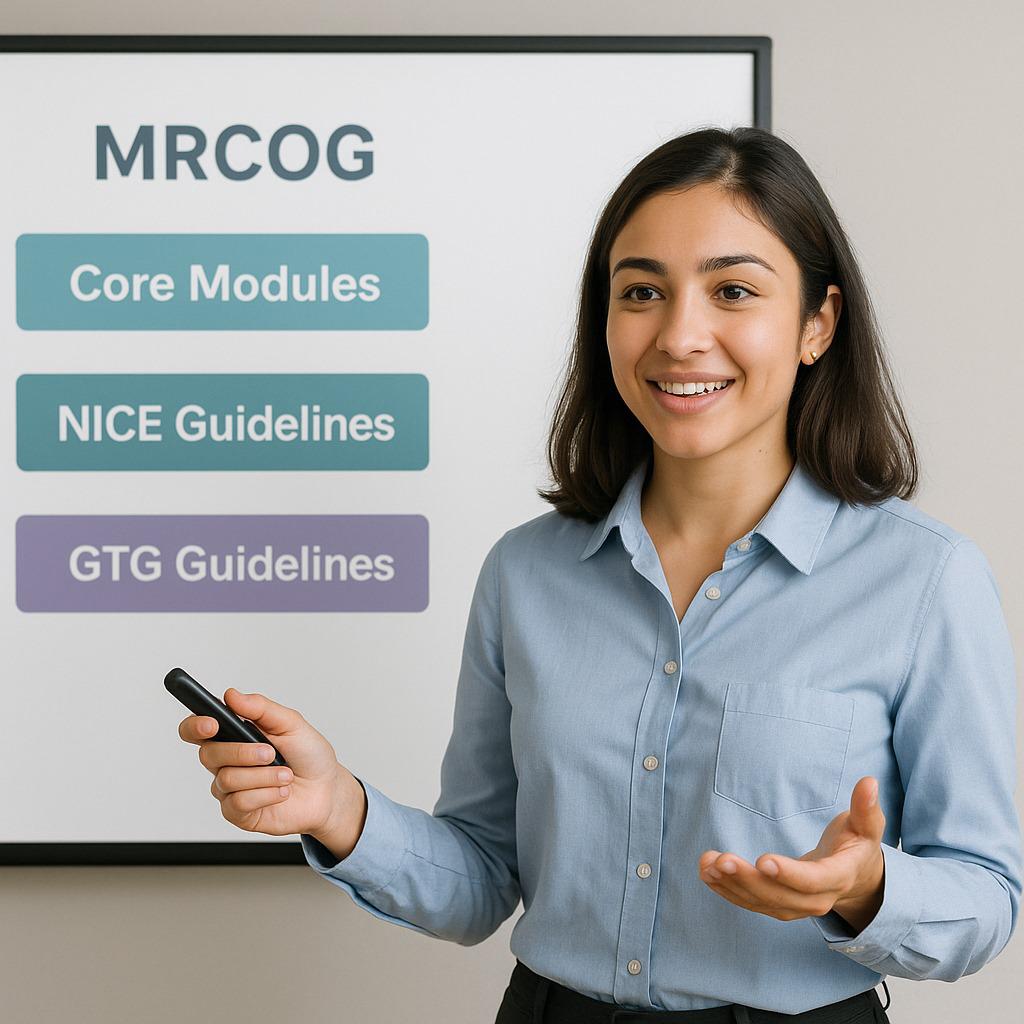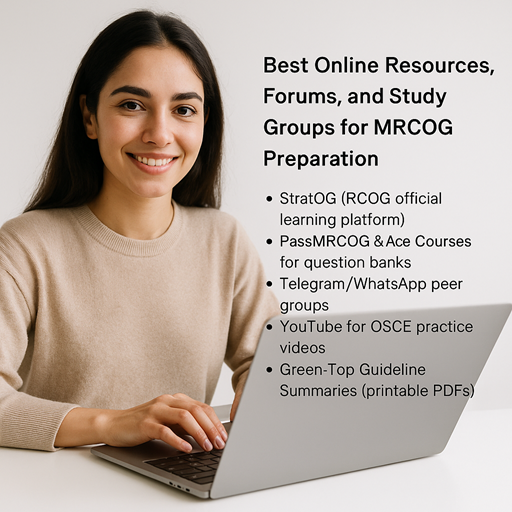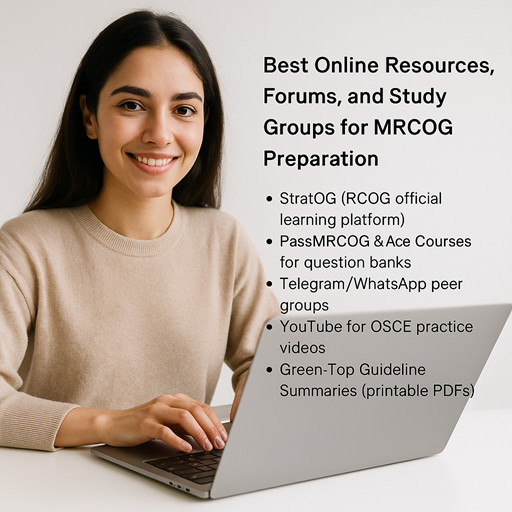2025-04-23 | Category: Mrcog 2

🎤 Cracking MRCOG Part 3:
Your Guide to OSCE Success
The MRCOG Part 3 exam is the final and most practical
stage of the MRCOG journey. It’s not about how much you know, but how
well you can apply that knowledge in a real-world setting—while staying
calm, clear, and compassionate.
Part 3 tests your ability to communicate with patients and
colleagues, make safe and evidence-based decisions, and conduct yourself as a
competent, professional obstetrician and gynaecologist.
Whether you're preparing for the exam for the first time or
re-attempting with fresh perspective, this guide covers everything you
need—from structure to strategies and common pitfalls.
🩺 What Is the MRCOG Part
3 Exam?
- 📍
Format: 14-task Objective Structured Clinical Examination (OSCE)
- 📍
Duration: Each station lasts around 12 minutes
- 📍
Delivery: Either face-to-face in the UK or selected international
centres, or remote via online platform
- 📍
Structure: Each station assesses 1–2 of the following four core
domains:
🔍 The Four Assessment
Domains:
- Information
Gathering: History taking, risk assessment, interpretation of results
- Communication
with Patients: Empathy, structure, shared decision-making
- Communication
with Colleagues: Handover, documentation, interprofessional
collaboration
- Patient
Safety and Clinical Judgment: Managing complications, recognising red
flags, escalation
🧠 How to Prepare for
MRCOG Part 3: Smart Strategies
🎭 1. Practice
Role-Playing with Real-Time Feedback
- Simulate
stations with colleagues, peers, or mentors
- Alternate
roles: doctor, patient, observer
- Time
each session and debrief afterward
Pro tip: Video-record yourself to spot distracting
habits or unclear explanations.
📚 2. Master the Green-Top
Guidelines and TOG Content
- Your
management decisions must align with RCOG recommendations
Use the guidelines to structure your OSCE responses
clearly and confidently.
📄 3. Study RCOG Examiner
Reports and Blueprints ( Courses and if have attempted the exam in the past)
These reports reveal:
- Recurring
weak areas in past cohorts
- Common
candidate errors
- Themes
like “lack of structure” or “insufficient empathy”
🎯 4. Simulate Full OSCE
Circuits
- Recreate
exam conditions (14 stations, timed)
- Invite
senior doctors or educators to play assessors
- Get
written and verbal feedback after each circuit
You can also attend structured online mock OSCEs
📈 5. Use a Feedback
Tracker
Keep a log of:
- Station
type
- What
went well
- Areas
for improvement
- Action
plan for next attempt
This accelerates growth and reduces repeated mistakes.
🧪 Common Station Types in
MRCOG Part 3
Here are some common OSCE station categories you must be
ready for:
|
Station Type |
Example Scenario |
|
🔴 Breaking Bad News |
Fetal demise, abnormal ultrasound result |
|
🟠 Emergency
Management |
PPH, shoulder dystocia, eclampsia |
|
🟡 Shared
Decision-Making |
Induction of labour, VBAC counselling |
|
🟢 Professionalism |
Handling colleague errors, confidentiality |
|
🔵 Consent &
Legal |
Sterilisation, blood transfusion, hysterectomy |
|
🟣 Telephone Advice |
Midwife reporting reduced fetal movements |
|
⚪ Handover |
SBAR format, escalation, team communication |
|
🟤 Antenatal
Counselling |
Multiple pregnancy, congenital anomalies |
🔁 Each station is mapped
to the 4 core domains, but only 1–2 domains are marked per station. Your
answers should reflect domain awareness.
🧘♀️ Mental Preparation
Matters
- 💬
Practice structured communication (ISBAR, SPIKES protocol)
- 🧘♂️
Manage nerves with breathing techniques before stations
- 😌
Remind yourself: You’re not expected to be perfect—just safe,
professional, and compassionate
🔚 Final Tips for MRCOG
Part 3 Success
- Practice
aloud every day—even solo
- Prioritise
clarity over complexity
- Don't
bluff: If unsure, explain your reasoning and escalate appropriately
- Start
each OSCE station with a structure in mind
- Be
kind, calm, and consistent—both to yourself and your patient
📥 Enhance Your
Preparation with MRCOG PASS EXAMINATIONS
We offer:
- ✅
OSCE question banks with model responses
- ✅
Domain-based marking schemes
- ✅
Live mock circuit sessions with peer and tutor feedback
- ✅
GTG + scenario-based flashcards
- ✅
Video coaching and reflective practice logs
👉 Join now and get
access to structured tools that mirror the RCOG format!



